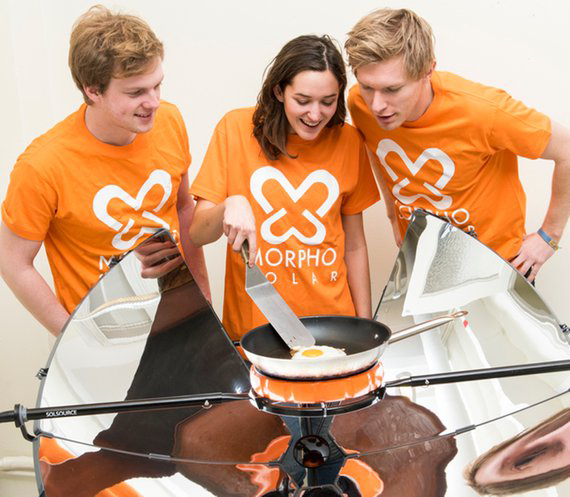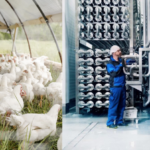You have probably heard on a warm summer day someone remark that it is so hot you could fry an egg on the pavement. That might not be such a good idea, but harnessing the sun for cooking is not improbable at all. Actually, students from NTNU are making sure it is already being done.
A spin-off company from NTNU has after eight years of research developed a breakthrough in solar cookers. Introducing Morpho Solar or Solgrillen their vision is to solve problems in developing countries.
Cooking with solar power solves a host of problems. One is the availability and cost of cooking fuels. Another is the sustainability of the fuels. Some are fossil fuel based, impacting the environment and driving climate change, while the bio-based fuels used in many poor countries lead to deforestation and soil erosion and depletion according to EcoWatch.
Still another is the safety and health impact of cooking with these fuels, which can give off toxic by-products.
According to the World Health Organization around 3 billion people cook and heat in their homes using open fires and simple stoves burning biomass and coal. An appalling number of 4.3 million people die prematurely from illness attributable to the house air pollution caused by the inefficient use of solid fuels, according to data statistics from WHO. Most are poor, and live in low- and middle-income countries. In poorly ventilated dwellings, indoor smoke can be 100 times higher than acceptable levels for small particles.
“Our long-term goal is to address the challenges of deforestation and health by providing a clean alternative to biomass,” says Guro Grytli Seim, the CEO of the company.
“Today, more than 2,7 billion people use biomass as their primary cooking fuel, and more people are dying of illnesses from indoor smoke pollution than of malaria. This is a situation we want to improve,” she says.
World-leading technology from NTNU
Their technology development is based on eight years of research from the Norwegian University of Science and Technology, together with seven cooperating African universities. The result, a solar cooker that uses the energy of direct sunlight to heat, cooks or pasteurizes food.
The system uses the principle of phase-change to store and release heat. Their system will enable solar cooking after sunset by constructing and testing a small scale concentrating solar heat collectors with integrated heat storage units.
The key ingredient is a salt with a melting temperature of 220 °C. Sunlight concentrated by a parabolic reflector melts the salt, when heat is needed; the salt is allowed to solidify, which releases heat.
No similar solutions on the market
The NTNU Company is also developing a heating coil that is going to fit together with the solar grill. The research has been a collaborative project between NTNU and African universities, with a good support from the Research Council NORGLOBAL program. Scientists at the Energy and Process Engineering located at NTNU have been working on the project for several years with a result of world-leading research. Professor Ole Jørgen Nydal and PhD student Asfafaw Tesay have a central role in developing the technology.
“We have been to the US, Ethiopia and India to investigate the market, and we now know that this is world-leading technology. There are no similar solutions on the market. The heat battery will be sold worldwide together with Solgrillen.”
Solar cooker is the future way to cook and it is already big in countries like USA, Australia and China. It is also ideal for environmentally friendly out-door camping. Seim and her colleagues in Morpho Solar strongly believe that Norwegians will acquire solar grilling in the future.









